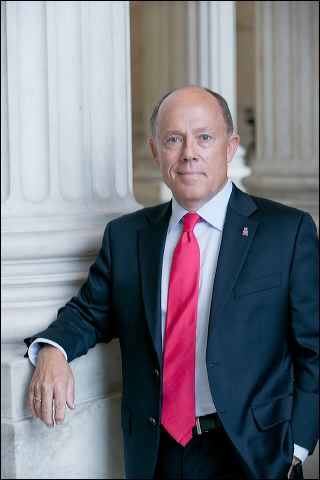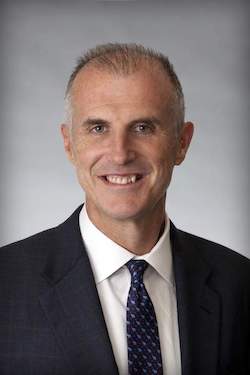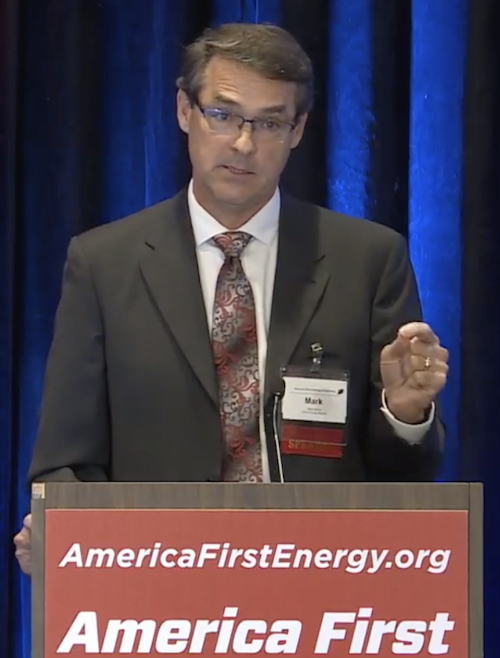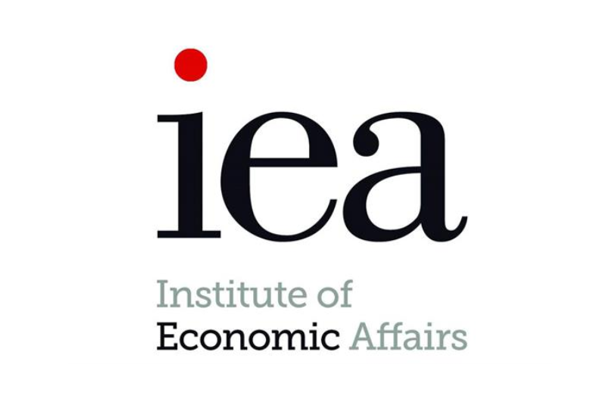Mark P. Mills
Credentials
- BSc Honors, Physics, Queen’s University1“About,” tech-pundit.com. Archived December 17, 2018. Archive.is URL: http://archive.is/zbO6I
Background
Mark Mills has been President of Digital Power Group since 2001 and operates the website Tech-Pundit.com. He is a Faculty Fellow at the McCormick School of Engineering and Applied Science at Northwestern University, a Senior Fellow at the Manhattan Institute, and a Strategic Partner at Cottonwood Venture Partners, an investment firm focused on technological advancements in oil and gas production. He serves on the Advisory Board of the Notre Dame Reilly Center for Science, Technology, and Values.2“About,” tech-pundit.com. Archived December 17, 2018. Archive.is URL: http://archive.is/zbO6I
Mills began his career in uranium mining and refining with Eldorado Nuclear (now Cameco) before moving to RCA as an engineer and physicist. He worked on defense-related projects with NORTEL and served as a staff consultant to the White House Science Office during the tenure of President Ronald Reagan.3“About,” tech-pundit.com. Archived December 17, 2018. Archive.is URL: http://archive.is/zbO6I
Mills is a regular contributor to Forbes Magazine and his writings have been featured in the New York Times and Wall Street Journal. He has appeared on television on multiple networks.4“About,” tech-pundit.com. Archived December 17, 2018. Archive.is URL: http://archive.is/zbO6I 5“Mark P. Mills,” LinkedIn. Accessed December 12, 2018. Archived .pdf on file at DeSmog.
Mills co-founded the venture capital firm Digital Power Capital, ICx Technologies, the Electric Council for the Economy, the Critical Power Coalition, the Center for Science Technology & Media, and the ElectroTechnology Marketing Group.6“About,” tech-pundit.com. Archived December 17, 2018. Archive.is URL: http://archive.is/zbO6I
The Greening Earth Society, a project of the Western Fuels Alliance that promoted CO2 as beneficial to the environment, listed Mills as a scientific advisor between 1998 and 2000.7“Scientific Advisors,” greeningearthsociety.org. Archived October 22, 2000. Archive.is URL: http://archive.is/Z3EB4
Stance on Climate Change
2005
Advocating for more U.S. nuclear power production, Mills and co-writer Peter Huber of the Manhattan Institute wrote:
“Many Greens think that they have a good grip on the likely trajectory of the planet’s climate over the next 100 years. If we keep burning fossil fuels at current rates, their climate models tell them, we’ll face a meltdown on a much larger scale than Chernobyl’s, beginning with the polar ice caps. Saving an extra 400 million tons of coal here and there—roughly the amount of carbon that the United States would have to stop burning to comply with the Kyoto Protocol today—would make quite a difference, we’re told. But serious Greens must face reality. Short of some convulsion that drastically shrinks the economy, demand for electricity will go on rising.”8Peter W. Huber, Mark P. Mills. “Why the U.S. Needs More Nuclear Power,” City Journal, Winter 2005. Archived December 18, 2018. Archive.is URL: http://archive.is/DpeQl
Key Quotes
2017
Writing for The New Atlantis, Mills expressed his belief that the only worthwhile technological advances in the energy sector were those that serve existing systems of procuring and processing fossil fuels:
“No existing technologies can move us away from hydrocarbons on a global scale; there are no quick, easy solutions.”9Mark P. Mills. “Making Technological Miracles,” The New Atlantis, Spring 2017. Archived December 18, 2018. Archive.is URL: http://archive.is/yLCsu
May 1, 2015
In a report published by the Manhattan Institute titled “Shale 2.0: Technology and the Coming Big-Data Revolution in America’s Shale Oil Fields,” Mills downplayed the efficacy of renewable energy sources when compared with shale oil:
“In terms of energy output, per unit of capital cost, for energy-producing hardware, shale technology has improved by some 500 percent during the past five years; wind turbines, solar cells, and lithium batteries have improved as well, but far less spectacularly. Further, efficiency gains in alternative-energy technologies are slowing, while shale technology shows few signs of a slowdown. Such trends refute the belief that tech progress is bypassing hydrocarbons.”10Mark P. Mills. “Shale 2.0: Technology and the Coming Big-Data Revolution in America’s Shale Oil Fields,” The Manhattan Institute, May 1, 2015. Archived December 18, 2018. Archive.is URL: http://archive.is/xwWHY. Archived .pdf on file at DeSmog.
January 14, 2009
Writing for The Spectator, Mills suggested an energy paradigm shift was unlikely to arise from new forms of energy, but rather from advances and efficiencies in the existing hydrocarbon sector:
“One thing has not changed in 40 years: perpetual-motion-machine-style wishful thinking. While emerging energy technologies offer exciting (essential) promise, none of them are about to disrupt the oil industry. Terrorism, terrible policies, and wars can. Energy tech is the hope to sustain, not disrupt, our oil-dependent economy.”11Mark P. Mills. “Will Exxon Get Googled?”, The Spectator, January 14, 2009. Archived December 18, 2018. Archive.is URL: http://archive.is/iJFOr
2000
Praising the role of cities in maximizing economic productivity while preserving the rural landscape for agriculture and wildlife, Mills and Peter Huber asserted no new forms of energy would be able to power increasingly consumptive urban environments:
“The city itself is all the more kind to the environment, because it has so completely rejected the policies that the green establishment holds dearest. It shuns ‘renewables.’ …
“There’s no way the city could ever adopt the green establishment’s ‘renewable’ path to energy. Manhattan is never going to heat its buildings or power its computers with rooftop solar cells, biomass, or windmills. There’s nowhere near enough rooftop or wind, and no biomass to speak of, other than the mass of the people.”12Peter W. Huber, Mark P. Mills. “How Cities Green the Planet,” City Journal, Winter 2000 issue. Archived December 18, 2018. Archive.is URL: http://archive.fo/Bm6di
Key Deeds
October 10, 2019
Mills argued electric vehicles (EVs) “won’t save the planet and won’t survive without subsidies.”13Mark P. Mills. “Battery Derangement: Electric vehicles won’t save the planet and won’t survive without subsidies,” City Journal, October 10, 2019. Archived October 17, 2019. Archive.is URL: http://archive.is/kHdsV
He also predicted EV sales would stagnate with increased demand for fossil fuel-powered SUVs and trucks in America combined with the drawdown of Chinese EV subsidies and American job losses due to the outsourcing of battery manufacturing.14Mark P. Mills. “Battery Derangement: Electric vehicles won’t save the planet and won’t survive without subsidies,” City Journal, October 10, 2019. Archived October 17, 2019. Archive.is URL: http://archive.is/kHdsV
“Changing a car’s fuel source is about as revolutionary as changing the feed for a horse,” Mills claimed.15Mark P. Mills. “Battery Derangement: Electric vehicles won’t save the planet and won’t survive without subsidies,” City Journal, October 10, 2019. Archived October 17, 2019. Archive.is URL: http://archive.is/kHdsV
“Choosing a battery over an ICE [internal combustion engine] isn’t a revolution. It’s an option—an expensive one—that reduces neither total labor nor environmental impacts.”16Mark P. Mills. “Battery Derangement: Electric vehicles won’t save the planet and won’t survive without subsidies,” City Journal, October 10, 2019. Archived October 17, 2019. Archive.is URL: http://archive.is/kHdsV
August 5, 2019
Mills penned an op-ed for the Wall Street Journal that questioned the sustainability of renewable energy as well as its ability to replace carbon-based fuel sources. A speculative assessment of the financial and environmental costs of producing solar panels, wind turbines, and batteries was based on data from the Abu Dhabi-based International Renewable Energy Agency and the Dutch government.17Mark P. Mills. “If You Want ‘Renewable Energy,’ Get Ready to Dig,” Wall Street Journal, August 5, 2019. Archived August 6, 2019. Archive.is URL: http://archive.is/7H92b. Archived .pdf on file at DeSmog.
Concluding that renewables cannot replace carbon and nuclear power at current and predicted consumption levels, Mills described the spirit of the Paris Accords as an unobtainable dream:18Mark P. Mills. “If You Want ‘Renewable Energy,’ Get Ready to Dig,” Wall Street Journal, August 5, 2019. Archived August 6, 2019. Archive.is URL: http://archive.is/7H92b. Archived .pdf on file at DeSmog.
“Engineers joke about discovering ‘unobtainium,’ a magical energy-producing element that appears out of nowhere, requires no land, weighs nothing, and emits nothing. Absent the realization of that impossible dream, hydrocarbons remain a far better alternative than today’s green dreams.”19Mark P. Mills. “If You Want ‘Renewable Energy,’ Get Ready to Dig,” Wall Street Journal, August 5, 2019. Archived August 6, 2019. Archive.is URL: http://archive.is/7H92b. Archived .pdf on file at DeSmog.
September 13, 2018
In testimony before the Senate Committee on Energy and Natural Resources, Mills appeared on behalf of the Manhattan Institute to advocate for expanding the market for American-produced natural gas to overseas markets:
“Increasing domestic natural gas production has the potential to add millions of jobs and hundreds of billions of dollars to the GDP over the coming years. But in the new realty, it is clear that the scale of growth in domestic gas production coming can’t possibly get absorbed by any growth in U.S. domestic demand. In all likelihood, not even half of the expected rise in output from the profoundly productive American shale fields can be taken up domestically. Exports of LNG will become an increasing critical if not the primary vector for new gas production.”20“Testimony of Mark P. Mills, Senior Fellow, Manhattan Institute Before U.S. Senate Committee on Energy and Natural Resources On The Role of U.S. LNG in Meeting European Energy Demand,” United States Senate Committee on Energy and Natural Resources, September 13, 2018. Archived December 18, 2018. Archived .pdf on file at DeSmog.
2017
Mills co-founded Cottonwood Venture Partners with a focus on the “digital oilfield.” The firm’s portfolio includes holdings of technology companies that provide tools and services to oil and gas extractors.
As of 2018, CVP was invested in Ambyint, MineralSoft, Novi Labs, SitePro, and Well Data Labs.21“Portfolio,” cottonwoodvp.com. Archived December 18, 2018. Archive.is URL: http://archive.is/6dn8g
December 22, 2016
In a piece for Forbes.com titled “The Art of the Arctic Deal,” Mills lamented the outgoing Obama Administration’s offshore drilling ban:
“What are we to make of the Obama Administration’s unprecedented move to permanently ban offshore oil and gas drilling in the Arctic and the Atlantic coast? For the anti-oil ‘green’ lobby this action was publicly hailed as ‘an incredible holiday gift.’ The ban was also good news for lawyers readying for years of litigation to combat another of the current Administration’s ever-creative use of ancient statutes. More importantly, the move was doubtless greeted with quiet delight in Riyadh and Bejing (sic), and most of all in Moscow. It is fitting that the Obama Administration began, and now ends with a gift for Vladimir Putin.”22Mark P. Mills. “The Art of the Arctic Deal,” Forbes.com, December 22, 2016. Archived December 18, 2018. Archive.is URL: http://archive.is/VshtS
July 11, 2015
Mills presented a talk at The Heartland Institute’s Tenth International Conference on Climate Change. The title of the presentation, “Shale 2.0 Will End Green Dreams,” is based on a report Mills authored for the Manhattan Institute titled “Shale 2.0: Technology and the Coming Big-Data Revolution in America’s Shale Oil Fields.”23Mark Mills. “Shale 2.0 Will End Green Dreams,” climateconferences.heartland.org, July 11, 2015. Archived December 18, 2018. Archive.is URL: http://archive.is/6DduO. Archived .mp4 on file at DeSmog. 24Mark P. Mills. “Shale 2.0: Technology and the Coming Big-Data Revolution in America’s Shale Oil Fields,” The Manhattan Institute, May 1, 2015. Archived December 18, 2018. Archive.is URL: http://archive.is/xwWHY. Archived .pdf on file at DeSmog.
The fundamental assertion in Mills’ presentation was that technological advancements in fossil fuel extraction and processing far outpace advancements in the renewable energy sector, and should therefore be prioritized over renewables when shaping energy policies:
“At the core, all climate policies that are ultimately effected are always about energy. There’s nothing else about climate policy other than giving money to climate scientists to genuflect to the idea that the climate apocalypse is happening.”25Mark Mills. “Shale 2.0 Will End Green Dreams,” climateconferences.heartland.org, July 11, 2015. Archived December 18, 2018. Archive.is URL: http://archive.is/6DduO. Archived .mp4 on file at DeSmog.
September 23, 2014
Writing for RealClear Politics, Mills suggested geopolitical factors – namely terrorism and reliance on foreign sources of energy – required a boost in the production and export of U.S.-based fossil fuels.
In order to achieve energy dominance in the world hydrocarbon trade, Mills presented a strategy that begins with opening up private and public lands for expanded resource extraction:
“Step 1: Encourage yet more production on private and state lands. This could be done with expeditious regulatory approvals, as opposed to today’s heel-dragging, especially relating to collateral infrastructure from pipelines to refineries and ports (think Keystone pipeline). And to really accelerate things, we could offer the classes of tax credits, subsidies, and special favors now given to non-hydrocarbon energy.”26Mark P. Mills. “A Four-Step Energy Strategy For Our Time,” Real Clear Politics, September 23, 2014. Archived December 18, 2018. Archive.is URL: http://archive.is/SYVYQ
March 2, 2014
Speaking at a George Marshall Institute event, Mills presented his views on the profit margins of oil and gas technologies versus those associated with renewable energy. According to Mills, revenue yields from fossil fuels prove their superiority over alternative energy sources:27“Mark Mills on Energy Policy,” Youtube video uploaded by user George Marshall Institute, March 2, 2014. Archived .mp4 on file at DeSmog.
“When you buy a piece of hardware in a factory or any business it has a capital cost and a revenue yield, and these are the ultimate reductionist measures that matter. In the end, I’m a physicist, I like physics, I like tech, but in the end it’s the money that matters. The laws of physics always prevail, but they don’t work so well if you don’t make any money. In the business world, you need to make money.”
Mills also cited the economic growth catalyzed by fossil fuel production to justify the expansion of hydrocarbon extraction in the U.S.:
“We should get behind accelerating, not impeding, the oil and gas and coal sectors of the United States, because there’s a lot of jobs being created there already.”28“Mark Mills on Energy Policy,” Youtube video uploaded by user George Marshall Institute, March 2, 2014. Archived .mp4 on file at DeSmog.
August 2013
Mills authored a report sponsored by the National Mining Association and the American Coalition for Clean Coal Electricity (ACCCE) titled “The Cloud Begins With Coal: Big Data, Big Networks, Big Infrastructure, and Big Power.”
Citing growing energy demands from increased global data consumption, Mills presents a case for expanded coal-powered energy generation:
“Electricity fuels the infrastructure of the world’s ICT (Information-Communications-Technologies) ecosystem – the Internet, Big Date and the Cloud. Coal is the world’s largest single current and future source of electricity. Hence the title of this paper.”29Mark P. Mills. “The Cloud Begins With Coal: Big Data, Big Networks, Big Infrastructure, and Big Power,” tech-pundit.com, August 2013. Archived .pdf on file at DeSmog.
2005
Mills and Peter Huber, citing America’s ever-increasing energy demands, called on environmentalists to embrace nuclear power as the only viable alternative to coal:
“The power has to come from somewhere. Sun and wind will never come close to supplying it. Earnest though they are, the people who argue otherwise are the folks who brought us 400 million extra tons of coal a year. The one practical technology that could decisively shift U.S. carbon emissions in the near term would displace coal with uranium, since uranium burns emission-free. It’s time even for Greens to embrace the atom.”30Peter W. Huber, Mark P. Mills. “Why the U.S. Needs More Nuclear Power,” City Journal, Winter 2005. Archived December 18, 2018. Archive.is URL: http://archive.is/DpeQl
Affiliations
- George C. Marshall Institute — Board Member (as of 2015).31“Board Members,” George C. Marshall Institute. Archived August 15, 2015.
- Manhattan Institute — Senior Fellow, 2013-present.32“Mark P. Mills,” LinkedIn. Accessed December 12, 2018. Archived .pdf on file at DeSmog. 33“Mark P. Mills,” manhattan-institute.org. Accessed December 18, 2018. Archive.is URL: http://archive.is/0vu1z
- Greening Earth Society — Scientific Advisor, 1998-2000.34“Scientific Advisors,” greeningearthsociety.org. Archived October 22, 2000. Archive.is URL: http://archive.is/Z3EB4
- Eldorado Nuclear (Cameco) — Advisor of Power Analytics (former).35“Executive Profile: Mark P. Mills,” bloomberg.com. Accessed December 18, 2018. Archive.is URL: http://archive.is/dpMrz
- Atomic Industrial Forum — Science Advisor (former).36“About,” tech-pundit.com. Archived December 17, 2018. Archive.is URL: http://archive.is/zbO6I
- Scientists and Engineers for Secure Energy — Co-founder & Executive Director (former).37“About,” tech-pundit.com. Archived December 17, 2018. Archive.is URL: http://archive.is/zbO6I
- International Battery Inc. — Chairman & Interim CEO. (former).38“Executive Profile: Mark P. Mills,” bloomberg.com. Accessed December 18, 2018. Archive.is URL: http://archive.is/dpMrz
- Banc of America Securities — Technology Advisor (former).39“About,” tech-pundit.com. Archived December 17, 2018. Archive.is URL: http://archive.is/zbO6I
- Cottonwood Venture Partners — Strategic Partner, 2017-present.40“Mark P. Mills,” LinkedIn. Accessed December 12, 2018. Archived .pdf on file at DeSmog.
- Digital Power Capital — Co-founder and Chief Tech Strategist (former).41“About,” tech-pundit.com. Archived December 17, 2018. Archive.is URL: http://archive.is/zbO6I
- Digital Power Group — President, 2001-present.42“Mark P. Mills,” LinkedIn. Accessed December 12, 2018. Archived .pdf on file at DeSmog.
- McCormick School of Engineering and Applied Science at Northwestern University — Faculty Fellow, 2014-present.43“Mark P. Mills,” LinkedIn. Accessed December 12, 2018. Archived .pdf on file at DeSmog.
- Notre Dame Reilly Center for Science, Technology and Values — Advisory Board Member.44“About,” tech-pundit.com. Archived December 17, 2018. Archive.is URL: http://archive.is/zbO6I
- ICx Technologies — Co-founder, Chairman, CTO (former).45“About,” tech-pundit.com. Archived December 17, 2018. Archive.is URL: http://archive.is/zbO6I
- EYP Mission Critical Facilities — Board Director (former).46“About,” tech-pundit.com. Archived December 17, 2018. Archive.is URL: http://archive.is/zbO6I
- The Electric Council for the Economy 47“About,” tech-pundit.com. Archived December 17, 2018. Archive.is URL: http://archive.is/zbO6I
- Critical Power Coalition 48“About,” tech-pundit.com. Archived December 17, 2018. Archive.is URL: http://archive.is/zbO6I
- Center for Science Technology & Media 49“About,” tech-pundit.com. Archived December 17, 2018. Archive.is URL: http://archive.is/zbO6I
- ElectroTechnology Marketing Group50“About,” tech-pundit.com. Archived December 17, 2018. Archive.is URL: http://archive.is/zbO6I
- RCA OptoElectronics — Engineer.51“About,” tech-pundit.com. Archived December 17, 2018. Archive.is URL: http://archive.is/zbO6I
- Bell Northern Research (NORTEL) — Engineer.52“About,” tech-pundit.com. Archived December 17, 2018. Archive.is URL: http://archive.is/zbO6I
Social Media
- @MarkPMills on Twitter
- Mark P. Mills on Facebook
- Mark P. Mills on LinkedIn
Publications
According to Mills’ Tech-Pundit website, he contributes regular columns to Forbes.com and submits articles to the Wall Street Journal, USA Today, RealClear Politics, City Journal, and Investors Business Daily.53“Writing,” tech-pundit.com. Accessed December 18, 2018. Archive.is URL: http://archive.is/NaZTv
Between 2000 and 2003 Mills and Peter Huber co-authored the monthly Digital Power Report investment newsletter, which was published by Forbes.54“Writing,” tech-pundit.com. Accessed December 18, 2018. Archive.is URL: http://archive.is/NaZTv
Mills has written numerous reports for the Manhattan Institute, including:
- “The Real Fuel of the Future: Natural Gas,” September 24, 2018
- “Expanding America’s Petroleum Power: Geopolitics in the Third Oil Era,” February 12, 2016
- “Shale 2.0 – Technology and the Coming Big-Data Revolution in America’s Shale Oil Fields,” May 21, 2015
- “Prime the Pump: The Case for Repealing America’s Oil Export Ban,” July 6, 2014
- “The Cloud Begins With Coal: The Report,” December 10, 2013
- “Oil, Gas, And Coal Can Prime the Jobs Pump,” October 24, 2012
- “Unleashing the North American Energy Colossus: Hydrocarbons Can Fuel Growth and Prosperity,” July 12, 2012
Mills co-authored a book, The Bottomless Well: The Twilight of Fuel, The Virtue of Waste, and Why We Will Never Run Out of Energy, with Peter Huber in 2006, and wrote Work in the Age of Robots under the RealClearBooks imprint.55“Writing,” tech-pundit.com. Accessed December 18, 2018. Archive.is URL: http://archive.is/NaZTv
Other Resources
- “Mark P. Mills,” Sourcewatch.
Resources
- 1“About,” tech-pundit.com. Archived December 17, 2018. Archive.is URL: http://archive.is/zbO6I
- 2“About,” tech-pundit.com. Archived December 17, 2018. Archive.is URL: http://archive.is/zbO6I
- 3“About,” tech-pundit.com. Archived December 17, 2018. Archive.is URL: http://archive.is/zbO6I
- 4“About,” tech-pundit.com. Archived December 17, 2018. Archive.is URL: http://archive.is/zbO6I
- 5“Mark P. Mills,” LinkedIn. Accessed December 12, 2018. Archived .pdf on file at DeSmog.
- 6“About,” tech-pundit.com. Archived December 17, 2018. Archive.is URL: http://archive.is/zbO6I
- 7“Scientific Advisors,” greeningearthsociety.org. Archived October 22, 2000. Archive.is URL: http://archive.is/Z3EB4
- 8Peter W. Huber, Mark P. Mills. “Why the U.S. Needs More Nuclear Power,” City Journal, Winter 2005. Archived December 18, 2018. Archive.is URL: http://archive.is/DpeQl
- 9Mark P. Mills. “Making Technological Miracles,” The New Atlantis, Spring 2017. Archived December 18, 2018. Archive.is URL: http://archive.is/yLCsu
- 10Mark P. Mills. “Shale 2.0: Technology and the Coming Big-Data Revolution in America’s Shale Oil Fields,” The Manhattan Institute, May 1, 2015. Archived December 18, 2018. Archive.is URL: http://archive.is/xwWHY. Archived .pdf on file at DeSmog.
- 11Mark P. Mills. “Will Exxon Get Googled?”, The Spectator, January 14, 2009. Archived December 18, 2018. Archive.is URL: http://archive.is/iJFOr
- 12Peter W. Huber, Mark P. Mills. “How Cities Green the Planet,” City Journal, Winter 2000 issue. Archived December 18, 2018. Archive.is URL: http://archive.fo/Bm6di
- 13Mark P. Mills. “Battery Derangement: Electric vehicles won’t save the planet and won’t survive without subsidies,” City Journal, October 10, 2019. Archived October 17, 2019. Archive.is URL: http://archive.is/kHdsV
- 14Mark P. Mills. “Battery Derangement: Electric vehicles won’t save the planet and won’t survive without subsidies,” City Journal, October 10, 2019. Archived October 17, 2019. Archive.is URL: http://archive.is/kHdsV
- 15Mark P. Mills. “Battery Derangement: Electric vehicles won’t save the planet and won’t survive without subsidies,” City Journal, October 10, 2019. Archived October 17, 2019. Archive.is URL: http://archive.is/kHdsV
- 16Mark P. Mills. “Battery Derangement: Electric vehicles won’t save the planet and won’t survive without subsidies,” City Journal, October 10, 2019. Archived October 17, 2019. Archive.is URL: http://archive.is/kHdsV
- 17Mark P. Mills. “If You Want ‘Renewable Energy,’ Get Ready to Dig,” Wall Street Journal, August 5, 2019. Archived August 6, 2019. Archive.is URL: http://archive.is/7H92b. Archived .pdf on file at DeSmog.
- 18Mark P. Mills. “If You Want ‘Renewable Energy,’ Get Ready to Dig,” Wall Street Journal, August 5, 2019. Archived August 6, 2019. Archive.is URL: http://archive.is/7H92b. Archived .pdf on file at DeSmog.
- 19Mark P. Mills. “If You Want ‘Renewable Energy,’ Get Ready to Dig,” Wall Street Journal, August 5, 2019. Archived August 6, 2019. Archive.is URL: http://archive.is/7H92b. Archived .pdf on file at DeSmog.
- 20“Testimony of Mark P. Mills, Senior Fellow, Manhattan Institute Before U.S. Senate Committee on Energy and Natural Resources On The Role of U.S. LNG in Meeting European Energy Demand,” United States Senate Committee on Energy and Natural Resources, September 13, 2018. Archived December 18, 2018. Archived .pdf on file at DeSmog.
- 21“Portfolio,” cottonwoodvp.com. Archived December 18, 2018. Archive.is URL: http://archive.is/6dn8g
- 22Mark P. Mills. “The Art of the Arctic Deal,” Forbes.com, December 22, 2016. Archived December 18, 2018. Archive.is URL: http://archive.is/VshtS
- 23Mark Mills. “Shale 2.0 Will End Green Dreams,” climateconferences.heartland.org, July 11, 2015. Archived December 18, 2018. Archive.is URL: http://archive.is/6DduO. Archived .mp4 on file at DeSmog.
- 24Mark P. Mills. “Shale 2.0: Technology and the Coming Big-Data Revolution in America’s Shale Oil Fields,” The Manhattan Institute, May 1, 2015. Archived December 18, 2018. Archive.is URL: http://archive.is/xwWHY. Archived .pdf on file at DeSmog.
- 25Mark Mills. “Shale 2.0 Will End Green Dreams,” climateconferences.heartland.org, July 11, 2015. Archived December 18, 2018. Archive.is URL: http://archive.is/6DduO. Archived .mp4 on file at DeSmog.
- 26Mark P. Mills. “A Four-Step Energy Strategy For Our Time,” Real Clear Politics, September 23, 2014. Archived December 18, 2018. Archive.is URL: http://archive.is/SYVYQ
- 27“Mark Mills on Energy Policy,” Youtube video uploaded by user George Marshall Institute, March 2, 2014. Archived .mp4 on file at DeSmog.
- 28“Mark Mills on Energy Policy,” Youtube video uploaded by user George Marshall Institute, March 2, 2014. Archived .mp4 on file at DeSmog.
- 29Mark P. Mills. “The Cloud Begins With Coal: Big Data, Big Networks, Big Infrastructure, and Big Power,” tech-pundit.com, August 2013. Archived .pdf on file at DeSmog.
- 30Peter W. Huber, Mark P. Mills. “Why the U.S. Needs More Nuclear Power,” City Journal, Winter 2005. Archived December 18, 2018. Archive.is URL: http://archive.is/DpeQl
- 31“Board Members,” George C. Marshall Institute. Archived August 15, 2015.
- 32“Mark P. Mills,” LinkedIn. Accessed December 12, 2018. Archived .pdf on file at DeSmog.
- 33“Mark P. Mills,” manhattan-institute.org. Accessed December 18, 2018. Archive.is URL: http://archive.is/0vu1z
- 34“Scientific Advisors,” greeningearthsociety.org. Archived October 22, 2000. Archive.is URL: http://archive.is/Z3EB4
- 35“Executive Profile: Mark P. Mills,” bloomberg.com. Accessed December 18, 2018. Archive.is URL: http://archive.is/dpMrz
- 36“About,” tech-pundit.com. Archived December 17, 2018. Archive.is URL: http://archive.is/zbO6I
- 37“About,” tech-pundit.com. Archived December 17, 2018. Archive.is URL: http://archive.is/zbO6I
- 38“Executive Profile: Mark P. Mills,” bloomberg.com. Accessed December 18, 2018. Archive.is URL: http://archive.is/dpMrz
- 39“About,” tech-pundit.com. Archived December 17, 2018. Archive.is URL: http://archive.is/zbO6I
- 40“Mark P. Mills,” LinkedIn. Accessed December 12, 2018. Archived .pdf on file at DeSmog.
- 41“About,” tech-pundit.com. Archived December 17, 2018. Archive.is URL: http://archive.is/zbO6I
- 42“Mark P. Mills,” LinkedIn. Accessed December 12, 2018. Archived .pdf on file at DeSmog.
- 43“Mark P. Mills,” LinkedIn. Accessed December 12, 2018. Archived .pdf on file at DeSmog.
- 44“About,” tech-pundit.com. Archived December 17, 2018. Archive.is URL: http://archive.is/zbO6I
- 45“About,” tech-pundit.com. Archived December 17, 2018. Archive.is URL: http://archive.is/zbO6I
- 46“About,” tech-pundit.com. Archived December 17, 2018. Archive.is URL: http://archive.is/zbO6I
- 47“About,” tech-pundit.com. Archived December 17, 2018. Archive.is URL: http://archive.is/zbO6I
- 48“About,” tech-pundit.com. Archived December 17, 2018. Archive.is URL: http://archive.is/zbO6I
- 49“About,” tech-pundit.com. Archived December 17, 2018. Archive.is URL: http://archive.is/zbO6I
- 50“About,” tech-pundit.com. Archived December 17, 2018. Archive.is URL: http://archive.is/zbO6I
- 51“About,” tech-pundit.com. Archived December 17, 2018. Archive.is URL: http://archive.is/zbO6I
- 52“About,” tech-pundit.com. Archived December 17, 2018. Archive.is URL: http://archive.is/zbO6I
- 53“Writing,” tech-pundit.com. Accessed December 18, 2018. Archive.is URL: http://archive.is/NaZTv
- 54“Writing,” tech-pundit.com. Accessed December 18, 2018. Archive.is URL: http://archive.is/NaZTv
- 55“Writing,” tech-pundit.com. Accessed December 18, 2018. Archive.is URL: http://archive.is/NaZTv






